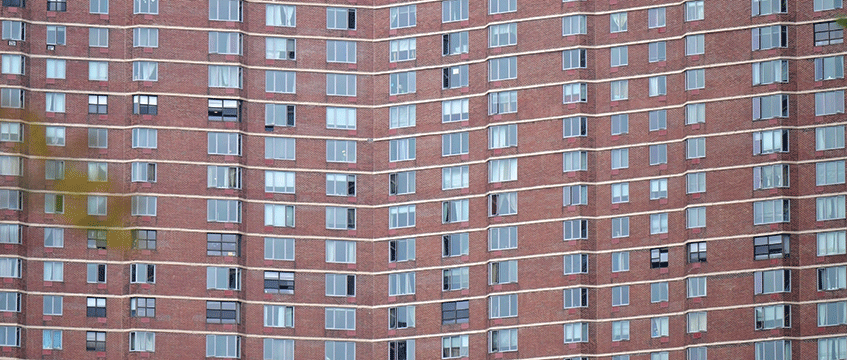What’s the point of leasehold?
COMMENT “Michael Gove vows to scrap ‘feudal’ leasehold system this year” was the headline in the The Times last month, following a round of interviews the secretary of state for levelling up, housing and communities gave to the media.
The plan is not quite full-scale abolition, as the headline suggests, but his department intends to bring forward proposals to abolish the restrictions on collective enfranchisement where part of the building is commercial property. The article also says the government will make it much easier for leaseholders in flats to take over their buildings and bring them into common ownership to avoid extortionate management fees and ground rents.
But the headlines ask the question about whether outright abolition of leasehold is desirable, or even possible. As the secretary of state acknowledged in an interview with Sky News, untangling the common law system of rules for leasehold that goes back centuries would be a difficult task. In my view, abolition is not just undesirable, it is virtually impossible and a waste of time. What is needed is bold reform of the existing system.
COMMENT “Michael Gove vows to scrap ‘feudal’ leasehold system this year” was the headline in the The Times last month, following a round of interviews the secretary of state for levelling up, housing and communities gave to the media.
The plan is not quite full-scale abolition, as the headline suggests, but his department intends to bring forward proposals to abolish the restrictions on collective enfranchisement where part of the building is commercial property. The article also says the government will make it much easier for leaseholders in flats to take over their buildings and bring them into common ownership to avoid extortionate management fees and ground rents.
But the headlines ask the question about whether outright abolition of leasehold is desirable, or even possible. As the secretary of state acknowledged in an interview with Sky News, untangling the common law system of rules for leasehold that goes back centuries would be a difficult task. In my view, abolition is not just undesirable, it is virtually impossible and a waste of time. What is needed is bold reform of the existing system.
Why is abolition impossible?
Any system of enforced enfranchisement will require landlords to be compensated for the loss of the value in the freehold. Compensation is required by Article 1 of the First Protocol of the European Convention on Human Rights. A premium is payable by tenants exercising their right to purchase the freehold of residential flats under the Leasehold Reform, Housing and Urban Development Act 1993. Any legislation abolishing leasehold would need to make provision for compensating the landlord in the same way, but many tenants may be unwilling or unable to raise the necessary funds.
Abolishing leasehold also gives rise to fundamental problems in relation to the maintenance and services of the building housing freehold flats. Leasehold title allows positive freehold covenants to run with the land more easily than with freehold title. Without this, the provision of services and maintenance in blocks of flats would be extremely difficult. In freehold estates, this difficulty is addressed using estate rentcharges, but the system is more complex and does not have the same level of protection for the paying party as the service charge regime for long lessees. An added difficulty lies in who would be responsible for the enforcement of covenants between the owners of the flats. At present the parties can look to the landlord, right to manage company or other management company, and so one presumes a similar management structure would be required when converting leasehold flats into freeholds.
The obvious way forward is for the government to carry out further radical reforms of the leasehold system, perhaps even by consolidating and rationalising the ever-expanding statutory regimes. The long-held ambition to convert leaseholds to commonhold has yet to bear fruit, with the number of commonholds created since the Commonhold and Leasehold Reform Act 2002 in two digits. What then should the government do with leasehold?
Pathways to reform
There are lots of easy reforms that would improve the operation of the system of leasehold, without the need for abolition. The legislative framework underpinning it is labyrinthine and unnecessarily complex. There is not nearly enough space to delve into all the necessary reforms, but here are just two suggestions.
Abolish terms: The government has already taken steps to limit the scandal of landlords selling new leases with escalating ground rents by the enactment of the Leasehold Reform (Ground Rent) Act 2022. However, it could go further and abolish the need for a term certain in all new or extended long residential leases altogether. It is artificial for leases to need a length where the term already exists beyond the tenant’s natural life. The creation of terms of 125 years is designed to leave value in the reversion for the landlord, whereas terms of 999 years seem artificial.
Abolish forfeiture for residential long leases: If the government is serious about treating long lessees of flats as absolute owners, then why should it be possible for a landlord to terminate their lease for breach of covenant? There are countless examples in the law reports of tenants having their leases forfeited for non-payment of rent and service charges in circumstances where the demands did not come to their attention. On the one hand, landlords need tenants to contribute to service charges but what if a tenant lives abroad and for whatever reason did not realise the money was owed and the lease was eventually forfeited? Why should a tenant risk losing a valuable asset for carelessness or perhaps because of a crisis in their personal life?
Since the Court of Appeal’s decision in Gibbs v Lakeside Developments Ltd [2018] EWCA Civ 2874; [2019] PLSCS 1, there is even less flexibility for the grant of relief against forfeiture when more than six months have passed since the forfeiture. Landlords will argue that the threat of forfeiture is necessary security against non-payment and it will only increase the burden of recovery if it is removed. That is a legitimate argument but there may be a middle ground. Parliament could create a right to an overriding lease, like that in section 19 of the Landlord and Tenant (Covenants) Act 1995, where the landlord can go into possession and/or take the rents from the flat until the debt is repaid. Thereafter, the overriding lease will lapse, and the tenant will continue to hold their long lease.
Don’t throw the baby out with the bathwater
There is far too much loose talk about abolishing the leasehold estate and not enough about serious reform that will make it fit for the modern era of property ownership. The common law underpinning leasehold broadly works well. There just needs to be a programme of reform that will iron out the unfairness and opportunities for abuse.
Michael Walsh is a barrister at Tanfield Chambers
Image © Andrew H Walker/Shutterstock











